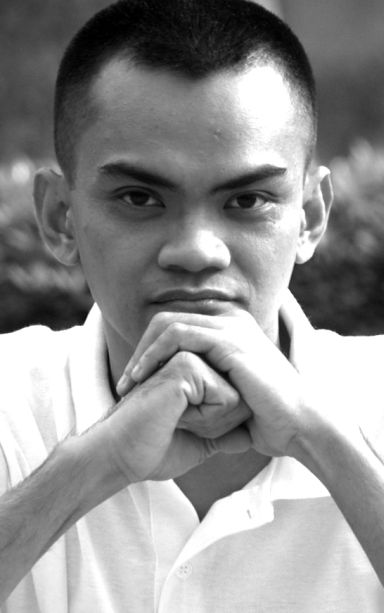
PAREDES
Lawyers occupy a special position in the Philippines. As we are supposed to be a “society of laws,” we always go to lawyers for all sorts of problems. Their opinion is sought on almost every issue, as law covers practically every aspect of our lives.
The Cebuano writer Resil Mojares thinks of the parish priest as the closest we have to a public intellectual. Perhaps, next to him is the attorney-at-law. After all, like priests, who usually take another four years of studies in theology after obtaining their bachelor’s degree (traditionally, philosophy), would-be lawyers also have to take another four years after college to earn their Bachelor of Laws degree. But that does not make them a lawyer yet. They have to pass the Bar exam, which is perceived by many people as the most difficult licensure examination.
Thus, this gives the impression among the masses that lawyers are some of the brightest people. Such high respect given to lawyers makes it easy for them to get elected for political position. And, of course, no one is probably more prepared for being a public official than a lawyer.
So in the Philippines, the professional title of “attorney” is always attached to the name of a lawyer as an honorific more intimidating than a PhD.
Some of my own relatives have stopped calling my brother by his first name since he became a lawyer. It’s almost the same as when a relative becomes a priest. Everyone, perhaps even his siblings, would start calling him “Father.”
For foreigners, this obsession with titles among Filipinos sounds very feudal. After all, in this country, you are continued to be called an attorney or judge beyond the courtroom by people even if you are hanging out with them at a high school reunion or karaoke party. There’s a lot of anecdotes of how, when attending international conferences, some Pinoy lawyers, architects, or engineers continue to sign their names on the registration sheets with their titles, or even more embarrassing, introduce themselves with those honorifics.
But one can imagine how it makes life easier just to have such titles attached to your name. It works like a password or a VIP card in many situations. But this sense of privilege also tends to give the bearer of such titles a sense of entitlement. Being addressed by the simple “sir,” for instance, makes for “smooth interpersonal relations.”
Still, there are lawyers who detest such distinctions. One of them unfortunately died recently. The news came to me a bit late of the passing of a friend, kababayan, former comrade and fellow Carolinian, Constantino Crabajales, a lawyer who preferred to serve as public prosecutor in Surigao del Sur.
Back in Angeles, Pampanga, when he was younger, Tino, as we fondly called him, was a student activist who was arrested, detained and tortured along with Jose Maria Sison during Martial Law. When Cory Aquino was installed as President after the Edsa Revolution in 1986, Tino was released along with Joma and other political detainees under the amnesty program.
He took a low profile and came to our hometown in Surigao City to continue his studies. He became a diligent student but continued to support student activism in Surigao, particularly in those years when the nation debated over the fate of the US bases in the Philippines, an issue dear to him, having lived near the Clark Air Base in Angeles City. My brothers and I were also just starting take part in the anti-bases campaign as budding activists. And that’s how I met Tino. He encouraged us to read to be able to defend well our position during debates not just on issues regarding the US bases but also political theory, particularly Marxism.
After I left Surigao to study in Cebu, I would meet Tino again, this time in the University of San Carlos where he was studying Law while I was a student in the fine arts department. Being married and a father, it was very difficult for Tino to afford himself to study in USC as a law student. He had to make both ends meet by selling ukay-ukay and being a habal-habal driver.
But Tino was a very diligent student. I always saw him reading his law books, even on his cot when once we were on the same boat on our way home to Surigao. He knew of my involvement in the student movement in USC, but he always excused himself that he was too busy with his studies.
I did not hear much from Tino after he went home when he became a lawyer. He chose to practice in the rural areas in Surigao del Sur as a member of the Public Attorney’s Office. The last time we met, he narrated how his clients would pay him with chickens, eggs or vegetables.
Then I learned from my brother that he was reprimanded by the lawyer’s group in Surigao after a pañero complained that he “degraded” the profession by wearing rugged clothes or being once seen driving a habal-habal. Apparently, Tino had missed his former job of bringing people on his motorbike.
Then last June, it was also a motorcycle accident that killed this humble but brilliant prosecutor who chose to serve the poor. I’d rather use Ka, short for Kauban or Comrade, as an honorific to address him. So farewell, Ka Tino, and thank you for inspiring us with your simplicity and dedicated service.
Disclaimer: The comments uploaded on this site do not necessarily represent or reflect the views of management and owner of Cebudailynews. We reserve the right to exclude comments that we deem to be inconsistent with our editorial standards.
